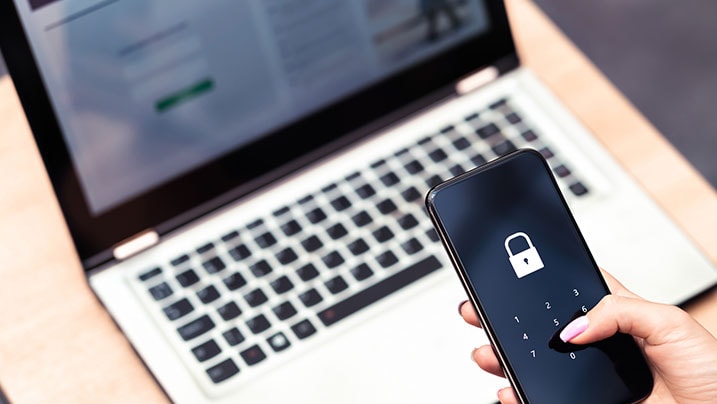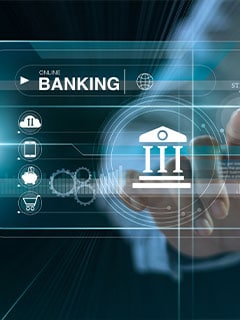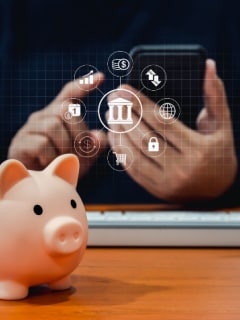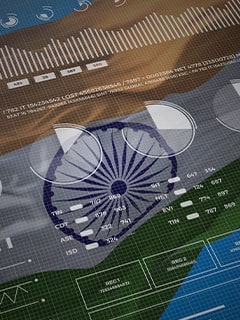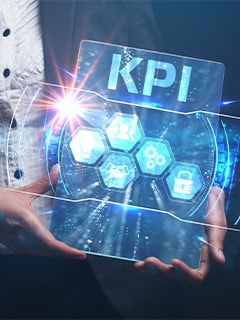CKYC Registry
-
Customer Service Contact us Service request Locate a branch
Find all the help you need
Scan the QR, get our app, and find help on your fingertips

Help CenterSupport topics, Contact us, FAQs and more
-
Login
Are you ready for an upgrade?
Login to the new experience with best features and services
-
Login
Are you ready for an upgrade?
Login to the new experience with best features and services
- Accounts
-
Deposits
IDFC FIRST Bank Deposits
View all Deposits -
Loans
IDFC FIRST Bank Loans
View all Loans - Wealth & Insure
-
Payments
IDFC FIRST Bank Payments
View all Payments -
Cards
IDFC FIRST Bank Cards
View all Cards - Blogs
- Corporate Account
-
Cash Management Services
IDFC FIRST Bank Cash Management Services
View all Cash Management Services - Supply Chain Finance
-
Corporate Lending
IDFC FIRST Bank Lending
View all -
Treasury
IDFC FIRST Bank Treasury
See more details - NBFC Financing
Support topics, Contact us, FAQs and more
- IDFC FIRST Bank Accounts
-
Savings Account
-
Corporate Salary
Account -
Senior Citizens
Savings Account -
First Power
Account -
Current Account
-
NRI Savings
Account -
TASC Institutional
Account -
Savings Account
Interest Calculator
- IDFC FIRST Bank Deposits
-
Fixed Deposit
-
Recurring Deposit
-
NRI Fixed Deposit
-
Safe Deposit Locker
-
FD Calculator
-
RD Calculator
- IDFC FIRST Bank Loans
-
Personal Loan
-
Consumer Durable
Loan -
Home Loan
-
Business Loan
-
Professional Loan
-
Education Loan
-
New Car Loan
-
Pre-owned Car Loan
-
Two Wheeler Loan
-
Pre-owned Two
Wheeler Loan -
Commercial Vehicle
Loan -
Gold Loan
-
Loan Against Property
-
Loan Against Securities
-
Easy Buy EMI card
-
Personal Loan
EMI Calculator -
Education Loan
EMI Calculator -
Home Loan
EMI Calculator
- IDFC FIRST Bank Wealth & Insure
-
FIRST Select
-
FIRST Wealth
-
FIRST Private
-
Mutual Funds
-
Sovereign Gold Bond
-
Demat Account
-
Term Insurance
-
Life Insurance
-
Health Insurance
-
General Insurance
-
Bonds
-
Loan Against
Securities -
Portfolio Management
Service
- IDFC FIRST Bank Payments
-
FASTag
-
Credit Card
Bill Payments -
UPI
-
Funds Transfer
-
Forex Services
-
Pay Loan EMI
- IDFC FIRST Bank Cards
-
Ashva :
Metal Credit Card -
Mayura :
Metal Credit Card -
FIRST Millennia
Credit Card -
FIRST Classic
Credit Card -
FIRST Select
Credit Card -
FIRST Wealth
Credit Card -
FIRST WOW!
Credit Card -
Deals
-
Debit Cards
-
Co-branded Cards
-
Credit Card
EMI Calculator -
FIRST Corporate
Credit Card -
FIRST Purchase
Credit Card -
FIRST Business
Credit Card
- Premium Metal Credit Cards
-
AshvaLifestyle1% Forex₹2,999
-
MayuraLifestyleZero Forex₹5,999
-
FIRST PrivateInvite Only
- Best for travellers
-
MayuraZero ForexMetal₹5,999
-
Ashva1% ForexMetal₹2,999
-
FIRST WOW!Zero ForexTravelLifetime Free
-
FIRST SWYPTravel OffersEMI₹499
-
FIRST Select1.99% ForexLifestyleLifetime Free
-
FIRST Wealth1.5% ForexLifestyleLifetime Free
-
Club VistaraTravelLifestyle₹4,999
-
IndiGo IDFC FIRST Dual Credit CardTravelLifestyle₹4,999
- Max benefits, Free for life
-
FIRST Classic10X RewardsShoppingNever Expiring Rewards
-
FIRST Millennia10X RewardsShoppingNever Expiring Rewards
-
FIRST Select10X RewardsLifestyle1.99% Forex
-
FIRST Wealth10X RewardsLifestyle1.5% Forex
-
FIRST WOW!RewardsTravelZero Forex
-
LIC ClassicRewardsInsuranceShopping
-
LIC SelectRewardsInsuranceShopping
- Reward Multipliers
-
AshvaLifestyleMetal₹2,999
-
MayuraLifestyleZero Forex₹5,999
-
FIRST ClassicNever Expiring RewardsShoppingLifetime Free
-
FIRST MillenniaNever Expiring RewardsShoppingLifetime Free
-
FIRST SelectNever Expiring RewardsLifestyleLifetime Free
-
FIRST WealthNever Expiring RewardsLifestyleLifetime Free
- Rewards & Credit on UPI
-
FIRST Power+FuelUPI₹499
-
FIRST PowerFuelUPI₹199
-
FIRST EA₹NVirtual1% Cashback₹499
-
FIRST DigitalVirtualUPI₹199
-
IndiGo IDFC FIRST Dual Credit CardUPITravelDual cards
- Fuel and Savings
-
FIRST PowerRewardsUPI₹199
-
FIRST Power+RewardsUPI₹499
-
LIC ClassicRewardsInsuranceShopping
-
LIC SelectRewardsInsuranceShopping
- Express and Flaunt
-
AshvaMetal1% Forex₹2,999
-
MayuraMetalZero Forex₹5,999
-
FIRST SWYPEMIOfferMAX₹499
-
FIRST MillenniaRewardsShoppingLifetime Free
- FD Backed rewarding Credit Cards for all
-
FIRST EA₹NVirtualCashback₹499
-
FIRST WOW!Zero ForexTravelLifetime Free
-
CreditPro Balance TransferTransfer & SaveReduce InterestPay Smartly
- IDFC FIRST Bank NRI Forex Solutions
-
Send money to India-Wire transfer
-
Send money to India-Digitally
-
Send money abroad
-
Max Returns FD (INR)
- IDFC FIRST Bank MSME Accounts
-
Platinum Current
Account -
Gold
Current Account -
Silver Plus
Current Account -
Merchant Multiplier
Account -
Agri Multiplier
Account -
TASC Institutional
Account -
Dynamic Current
Account -
World business
Account -
First Startup
Current Account
- IDFC FIRST Bank Business Loans
-
Business Loan
-
Professional Loan
-
Loan Against Property
-
Business Loan for Women
-
Working Capital Loan
-
Construction Equipment Loan
-
Machinery Loan
-
Healthcare Equipment Loan
- IDFC FIRST Bank Business Solutions
-
Payment Solutions
-
Tax Payments
-
Doorstep Banking
-
Point of Sale (POS)
-
Escrow Accounts
-
NACH
-
Payment Gateway
-
UPI
-
Virtual Accounts
-
As per amendment in the Income Tax Rules, PAN or Aadhaar are to be mandatorily quoted for cash deposit or withdrawal aggregating to Rupees twenty lakhs or more in a FY. Please update your PAN or Aadhaar. Kindly reach out to the Bank’s contact center on 1800 10 888 or visit the nearest IDFC FIRST Bank branch for further queries.
-
-
Most Searched
Sorry!
We couldn’t find ‘’ in our website
Here is what you can do :
- Try checking the spelling and search
- Search from below suggestions instead
- Widen your search & try a more generic keyword
Suggested
Get a Credit Card
Enjoy Zero Charges on All Commonly Used Savings Account Services
Open Account Now
Gone are the days when we had to stand in long queues for our banking transactions. Thanks to technological advancements, we now have digital banking facilities to help us conduct most of our banking transactions from the comforts of our homes. From online shopping to making payments on the go, internet banking has become our go-to buddy.
For example, with IDFC FIRST Bank Mobile Banking, you can check your savings account balance, invest in stocks and mutual funds, pay your insurance premiums, make contactless debit card payments, transfer your money to other users, recharge your mobile phone, and do much more.
But while internet banking has made our everyday banking tasks a lot easier, it has also led to a dramatic rise in cyber crimes all across the globe. As more and more people are using the internet to conduct their financial transactions and make purchases, cybercriminals are capitalising on opportunities to steal consumers’ personal information, banking passwords, money, etc.
Reports on Recent Online Frauds in India
As per a Hindustan Times report, Indians lost a total of Rs 6158.39 crores to online banking frauds between April 2009 and September 2019. Although these figures include the entire decade, most frauds happened in the latter half. In fact, Rs 129 crores were lost only during the last three months of the period mentioned above.
Furthermore, these figures have only escalated after the COVID-19 pandemic, when online banking started gaining more prominence.
The recent National Crime Records Bureau (NCRB) data shows that online banking fraud cases rose by more than 65% post-pandemic in India. Most crimes involved ATM, debit or credit cards, OTP, and banking password-related frauds.
According to the Internet Crime Complaint Centre (IC3), India ranked third globally in the number of online financial frauds reported in 2020. The United States of America (USA) and Canada were the only countries that reported higher online banking frauds in 2020 than India.
READ MORE
How to Prevent These Frauds and Ensure Safe Banking?
Retail consumers are not the only ones facing the wrath of online banking frauds. With increasing cybercriminals targeting small and large-scale organisations, businesses are at more significant risk.
Falling prey to such frauds not only results in substantial financial losses but also damages the business’s or individual’s reputation. The leak of sensitive information can lead to greater harm than just monetary loss, making it crucial to take protective measures while conducting online banking transactions.
Here are a few useful tips to help you prevent online banking frauds and ensure secure banking:
1. Never Use Public Computers for Online Banking Transactions
Net banking allows you to conduct online transactions from anywhere and at any time. You can just log in to your net banking account and perform a host of transactions, such as checking your banking account balance, transferring funds from your account to other accounts, downloading your bank statements, changing your debit card password, and a lot more.
However, it is strictly advisable to conduct these transactions only through your personal computer or smartphone. You should avoid using public computers for net banking at all costs. Doing so can lead to the theft of your net banking credentials, and you could easily lose all your money in your banking account.
2. Use Only Secure Internet Connections for Online Banking
While avoiding public computers for online banking is crucial, it is equally important to avoid public internet connections. It is common for people to connect their smartphones via public wi-fi and then conduct online transactions through it. However, it can land you in trouble in no time.
Cybercriminals can easily steal your sensitive information by hacking wi-fi connections and use them to dupe you for your hard-earned money. To ensure secure transactions, you should conduct them only through your mobile data or secured internet connections, such as your home broadband or wi-fi. You should even avoid using your office broadband if too many people are sharing it.
3. Create a Strong Online Banking Password
While it is easy to forget passwords, eventually prompting you to choose an easy one, you must create a strong password for your net banking login and ensure it is difficult for anyone to guess your ID or password.
Avoid creating generic passwords, such as “abcd1234” or “0000000”, as these can easily be guessed by the fraudsters as well as using your first name, surname, or date of birth in your net banking password as anyone who has this information can guess your password.
To create a strong password, you must include a mix of upper-case letters, lower-case letters, numbers, and special characters. It is best to memorise your password or write it down somewhere where only you can access it.
4. Keep Changing Your Password Frequently
No matter how strong a password you’ve created, it’s never strong enough for the fraudsters who keep trying different permutations and combinations to guess your internet banking password and steal your money.
Change your online banking password from time to time to protect your account from potential hackers and enable secure banking. While changing your passwords, make sure they do not match those you’ve previously used. And this goes without saying that you should never share your password with anyone.
5. Make Sure the Website or App is Secured Before Making an Online Payment
Online shopping has made our lives simpler and more convenient. You can simply purchase your favourite products from an app or a website and make the payment using your debit card, credit card, net banking, or mobile wallet. But be aware of the security credentials of the website or app before making an online payment on it.
Trying to make an online payment on an unauthorised website or app can result in cyberbanking fraud. For safe and secure payments, you can download the IDFC FIRST Bank Mobile Banking app on your smartphone and manage all your payments under a single roof.
To Conclude
As a business owner or even as an individual, you should take additional precautions to keep your money safe and secure. In case you notice an attempt of online banking fraud or phishing, you should immediately inform the cyber police and take the help of cyber security experts.
With IDFC FIRST Bank Mobile Banking, you can conduct a host of transactions from your smartphone in the most secure manner. Just make sure to be diligent and follow the secure banking tips mentioned above.
The features, benefits and offers mentioned in the article are applicable as on the day of publication of this blog and is subject to change without notice. The contents herein are also subject to other product specific terms and conditions and any third party terms and conditions, as applicable. Please refer our website www.idfcfirstbank.com for latest updates.








